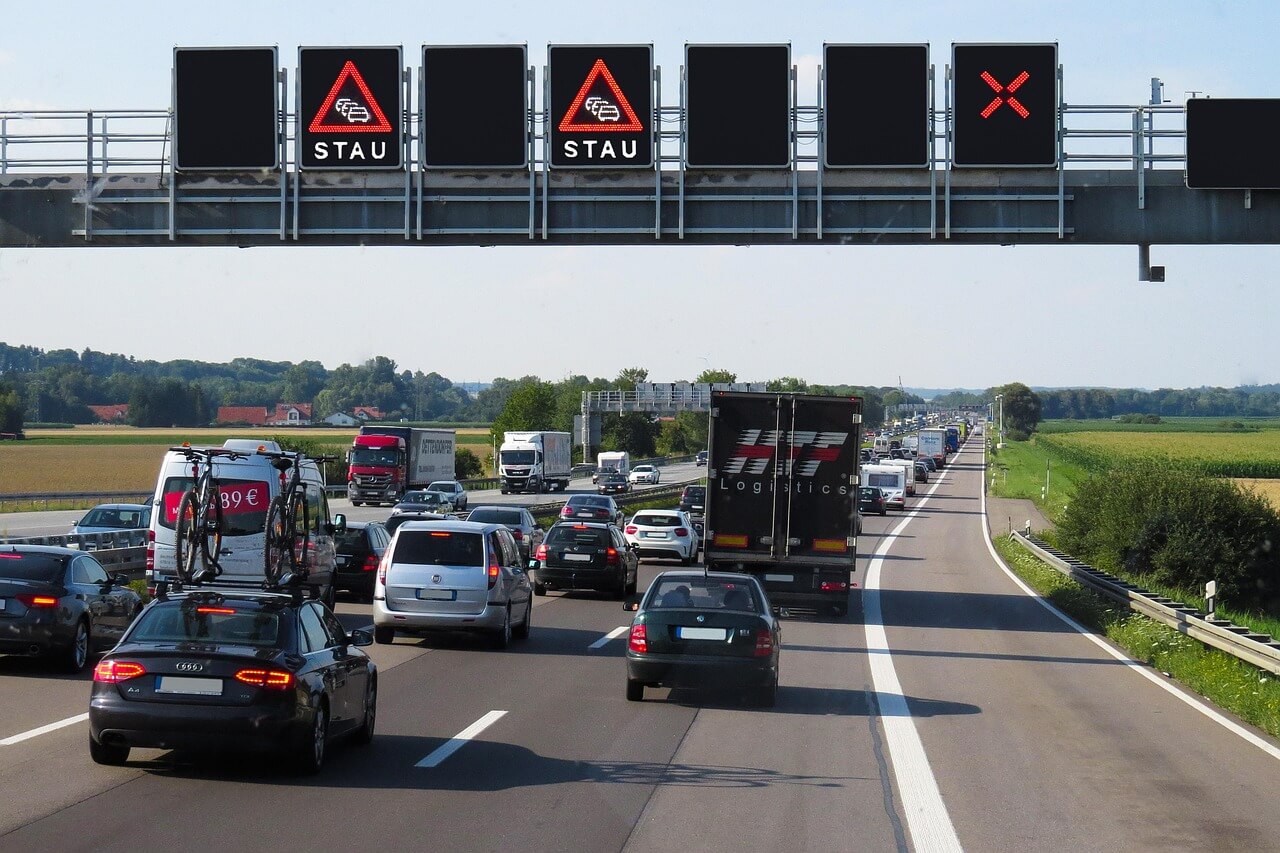News
Passive legitimation in claims settlement under the ‘green card system’

The Higher Regional Court of Frankfurt am Main recently ruled on an accident that occurred in 2021. The court dealt with a case in which zip traffic was involved. The parties were travelling on the BAB 45 motorway, which had three lanes. Due to roadworks, it was reduced to two lanes.
Shortly before the narrowing of the lanes, the plaintiff vehicle attempted to change from the left lane to the centre lane. However, due to heavy traffic, the driver immediately returned to the left lane once the vehicle was halfway into the centre lane. In the left-hand lane, the vehicle in front of the plaintiff's vehicle suddenly braked to a standstill.
The plaintiff's vehicle also braked in good time. Due to an inadequate safety distance and poor anticipation, the vehicle behind collided with the plaintiff's vehicle. The driver of the middle vehicle in this situation had fully comprehensive insurance with his insurer, who brought the action. The driver behind was driving a motorhome registered in the Netherlands. This resulted in property damage of around €60,000, which the insurer of the plaintiff's vehicle paid almost in full.
The insurer substantiated that the insured driver was maintaining a sufficient safety distance from the vehicle in front. Due to the lack of distance and failure to adjust his speed, the driver behind drove into the driver in the centre, causing him to collide with the vehicle in front. In fact, he had 'pushed' him into the vehicle. The defendants denied the incident, but argued that they did not have passive legitimacy.
The Higher Regional Court has now ruled that this is indeed the case.
Defendant 1) has the right of defence. According to the Foreign Vehicle Compulsory Insurance Act, in force from 8 September 2015 to 16 April 2024, defendant 1) is directly obliged to compensate the injured party for any damage caused in a traffic accident involving a motor vehicle subject to the green card system.
Damage caused by a Green Card holder who has entered the country is to be settled as if it had been caused by a resident with compulsory insurance.
The Green Card system applies to incidents involving an injured vehicle in Germany that result in claims for damages and are caused by a vehicle registered abroad (such as in the Netherlands, in this case). The purpose of the system is to protect road accident victims. You should be able to claim against the liable party or insurer in a country other than where the accident occurred. Additionally, you should be entitled to claim against the insurer of the vehicle involved in the accident, at least to the same extent as if the vehicle had liability insurance in the visiting country.
As the accident occurred in Germany, German liability law applies. Therefore, in accordance with § 6, para. 1 of the old version of the Foreign Vehicle Compulsory Insurance Act, the provisions of § 3 of the Compulsory Insurance Act and §§ 115 ff. of the Insurance Contract Act apply.
According to § 86 of the Insurance Contract Act, which came into effect as a result of the green card system, the insurer was authorised to take legal action against the defendant. Pursuant to § 6, para. 1 of the Foreign Vehicle Compulsory Insurance Act (old version), in conjunction with § 115, para. § 115 Para. 1, No. 1 of the Insurance Contract Act, the insurer was entitled to make a direct claim against the defendant as the new holder of the right.
They also referred to the fact that the parties involved were in a tense driving situation and that maximum attention was required. They referred to the plaintiff's vehicle's unfinished turning manoeuvre in doing so. Immediately before the collision, there was an 'unclear traffic situation involving the plaintiff's policyholder'. This was a hazardous and atypical traffic situation, which precludes the assumption of prima facie evidence.
This is also invalidated by the fact that the vehicle in front had previously changed lanes in the temporal and spatial context immediately prior to the accident. It was not stated that the plaintiff's vehicle cancelled the interrupted manoeuvre and intended to return to the left-hand lane. Therefore, the temporal and spatial connection still exists. Nevertheless, as the traffic situation was unclear, sole liability cannot be assigned. In such situations, liability is usually distributed 50:50.
Higher Regional Court (OLG Frankfurt), judgement of 29 April 2025 – 9 U 5/24.
Source: Pixabay/traffic-jam-7020216_1280
